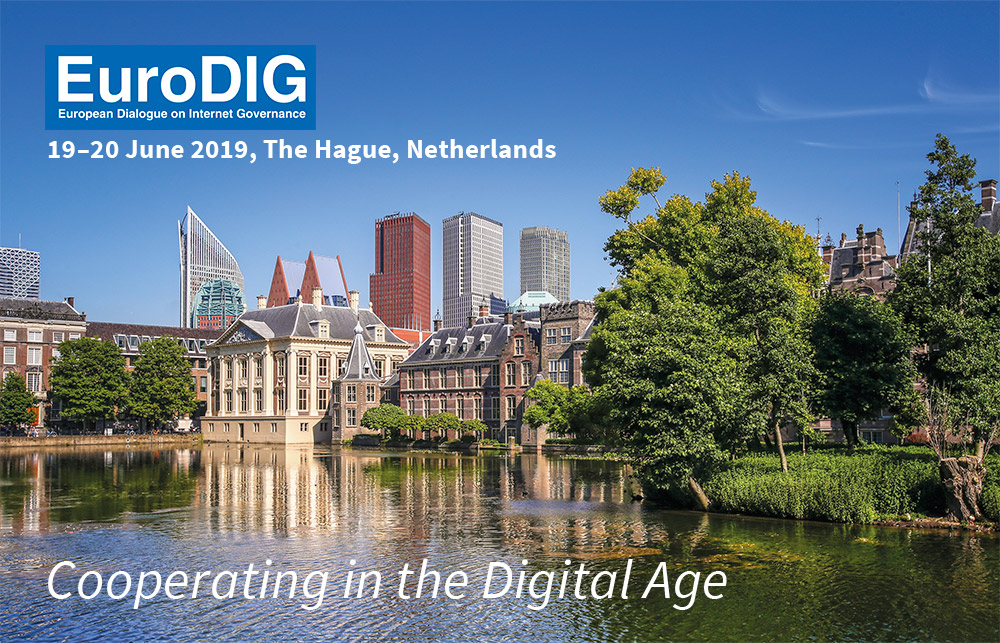EuroDIG holds a promise in its name: a forum to discuss regional issues related to internet governance that is more focused than its global counterpart - IGF. Less tangled in cultural and jurisdictional divergence, with a smaller group of committed attendants, EuroDIG is set all up to facilitate a true dialogue between stakeholders of all kind.
EuroDIG aims to nurture generations of future leaders through a proper welcoming program and YouthDIG. Through its strong and continuous support from a range of institutional, business and non-profit organisations, it provides the needed stability in an unstable and everchanging digital world.
However, this year’s EuroDIG regrettably did not meet the expectations.
It is easier to point out the symptoms than to identify the reasons for this change in pace. However, we do like to provide suggestions that could address some of the issues we observed.
EuroDIG 2019 gave a platform to too many familiar faces giving familiar monologues that could have been a copy-paste from previous editions. An éminence grise of the global IG crowd could not have illustrated this better than by closing a 20-minute monologue with the statement “We need dialogue, dialogue, dialogue”.
In order to address this homogeneity of contributors and statements, we suggest ensuring that the next edition of EuroDIG gives space and priority to less familiar faces. Additionally, moderators should be clearly instructed to intervene and stop panel discussions from turning into a series of unstructured lectures.
There were hardly any new elements, new research or even reliable data underpinning the discussions. There were, of course, a few exceptions, but the majority of the sessions were entirely based on opinions, rather than facts. We suggest starting every topic with a short presentation on the underlying data and hard facts. Each session covering legal aspects should have a short primer on the Wiki. A summary of market data could have avoided some of the biggest misconceptions that were shared without being rebutted.
The attending crowd is thinning. Some plenary sessions had fewer than 50 attendants. The joint CENTR, RIPE and ICANN training session had 6 attendees. This has reached a point where one needs to reflect on the return of the resources put into these initiatives. In comparison, rough numbers of attendees at a similar training during EuroDIG in Brussels was 80, in Tallinn 50 and in Tbilisi 25. It is hard to believe that there is no longer a need for training on how the internet infrastructure works. We still see several misconceptions over the role of internet infrastructure operators shining through in legislative proposals and news media. When speaking about the future of the internet, it is impossible not to take into account its present, and what is at stake when new standards are imposed.
For the significant number of no-shows, we suggest asking for a small refundable amount upon registration. If people effectively attend, it is reimbursed, but if they do not turn up, at least the generous hosts do not need to spend resources on food for empty seats.
Some session formats were unfit for the purpose and some sessions were poorly planned. Being invited to replace missing speakers hours before a session on a daily basis signals a systemic issue. Some sessions suffered from poor or partial planning, lorem ipsum style summaries and a lack of coordination between the replacement speakers.
We suggest increasing the support for the session organisers and focal points. A look at the Wiki shows clearly how a dedicated support could help to fill in the blanks. However, the EuroDIG team cannot do this on their own. They need more resources and everyone who believes in EuroDIG’s value should consider financially supporting increased structural support. A joint effort will be painless.
Concluding with three highlights from EuroDIG 2019:
The overview of best practice shared by the host was inspiring. This type of information-sharing should be a cross-cutting theme at EuroDIG. Why not allow this best-practice-sharing (vetted of course by a panel of peers) to become a structural element at EuroDIG?
Secondly, the networking opportunities at EuroDIG remain unequalled, signalling a great need for a forum to discuss regional internet governance issues.
And finally, just to showcase the potential of EuroDIG: watch the recording of the DoH session (available here): fact-driven, balanced facilitation, excellent discussion.
Hoping to be able to support and attend an improved and invigorated EuroDIG 2020,
The CENTR Team



